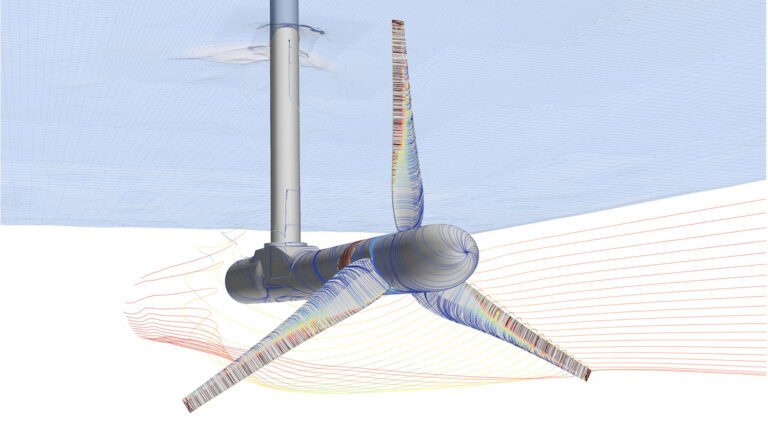The UK’s Cape Horn Engineering Delivers Accurate Results in Tidal Turbine Validation Study
The UK-based marine technology consultant Cape Horn Engineering has recently achieved significant success in a blind tidal turbine validation study, marking a milestone in the field of tidal energy technology development. The study, funded by the UK’s Engineering and Physical Sciences Research Council (EPSRC) and the Supergen Offshore Renewable Energy (ORE) Hub, aimed to reduce modeling uncertainty in turbine design by combining experimental data with computational fluid dynamics (CFD) results.
Cape Horn Engineering’s approach stood out in the study, providing some of the most accurate and computationally efficient solutions. Their high-resolution simulations using Siemens’ STAR-CCM+ code included full rotor geometry, nacelle, tower, tank walls, and free-surface effects. The firm’s modeling approach successfully replicated the experimental setup, achieving high accuracy at a low computational cost.
Key Findings
The results of the study demonstrated a strong correlation with experimental data, with average differences in power and thrust coefficients falling within the 95% confidence range of the experimental data. Cape Horn Engineering reported numerical uncertainties below 1% for key parameters, ranking their results among the most accurate and efficient in the benchmark. Other participants in the study often omitted crucial aspects such as tank walls, towers, or free surfaces in their blade-resolved CFD models.
Future Applications
Beyond tidal energy research, Cape Horn Engineering plans to leverage its CFD expertise in various areas, including wind energy rotors, floating platforms, wave energy structures, service operation vessels (SOVs), and crew transfer vessels (CTVs. The firm’s commitment to delivering accurate and efficient solutions positions them as a key player in the renewable energy sector.
Continued Success
In a separate validation study for Spiralis Energy’s Axial Skelter tidal test rig, Cape Horn Engineering achieved a match to experimental data with less than 1.5% deviation. This success further solidifies the firm’s reputation for excellence in CFD analysis and its ability to deliver precise results in complex engineering projects.

